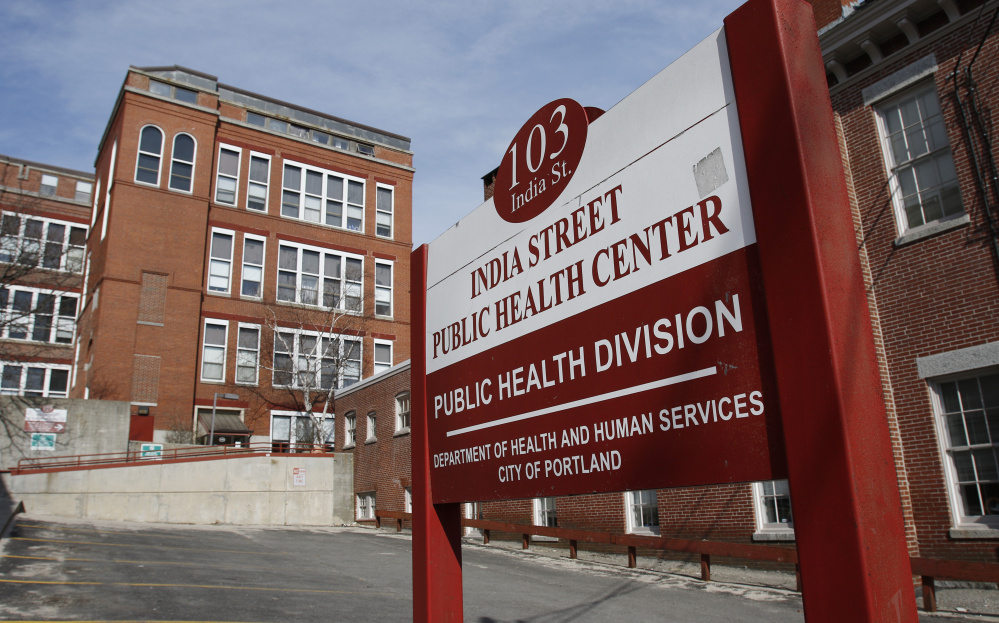Moving patients from one free clinic to another one just a mile and a half away might seem easy, but that does not begin to explain the complexity of what the city of Portland is considering.
Not when you are talking about moving roughly 1,000 patients from the city-run India Street Public Health Center to the Portland Community Health Center on Park Avenue, a privately operated nonprofit.
It’s not just the number of people involved but the unique constellation of programs that the city runs in its India Street location, which includes needle exchange, sexually transmitted disease testing, HIV-positive medicine and primary care. In the middle of a heroin epidemic, the stakes couldn’t be higher: If the city doesn’t get this right, people will die.
City Manager Jon Jennings has said that there is more than enough time to work out the details between now and Jan. 1, 2017, when the transfer would be complete. He and city staff are confident that the patients would get better care from a larger health care-focused organization, which would be able to connect them to services not available at India Street.
And because the Community Health Center is reimbursed from the federal government at a higher rate than other providers, the transfer would bring more health care money into the community, helping to pay the cost of caring for people with no insurance.
As a matter of policy, this approach makes a lot of sense. But there are some nagging practical questions that the City Council should answer before signing off on this idea.
One issue is location. The Park Avenue clinic is across the street from King Middle School, making it a bad location for a needle exchange. So is the Community Health Center’s Preble Street site, which is across the street from a community policing station. That may not be a welcoming place for an addict looking for a clean syringe.
Other locations at Franklin Towers, the Riverton Park apartments and near an affordable-housing development in South Portland are also all unsuitable for different reasons.
If the center found a good location for the needle exchange that was separate from the other India Street services, patients would miss out on the integrated care they currently receive, such as when someone comes in for a needle and gets an STD test, or treatment for a cough.
And there is some history that needs to be understood. This is not the first time that services have migrated from the city to the Portland Community Health Center. In 2014, the nonprofit won a grant to provide health care to the homeless, resulting in the closure of a 20-year-old city-run clinic. The results have been mixed.
While the number of homeless patients visiting the new medical clinic exceeds the center’s goals, there has been a steep reduction in the number of dental and behavioral health visits that had been delivered by the city.
Maine Medical Center reports a sharp increase in emergency room visits since the city’s clinic shut down, and the hospital is in talks with another nonprofit to create a new homeless health clinic that would relieve the pressure. This history should be fully understood before the council signs off on such an ambitious plan.
The council is due to vote on the budget May 16, which does not leave much time to answer these questions. That’s a tight timeline for such a complex decision.
Send questions/comments to the editors.



Success. Please wait for the page to reload. If the page does not reload within 5 seconds, please refresh the page.
Enter your email and password to access comments.
Hi, to comment on stories you must . This profile is in addition to your subscription and website login.
Already have a commenting profile? .
Invalid username/password.
Please check your email to confirm and complete your registration.
Only subscribers are eligible to post comments. Please subscribe or login first for digital access. Here’s why.
Use the form below to reset your password. When you've submitted your account email, we will send an email with a reset code.